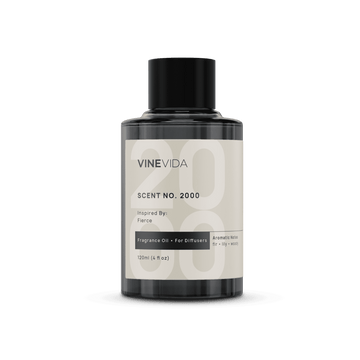With the popularity of using essential oils for wellbeing on the rise, it’s only natural you might want to assess their suitability for use around your pets.
Is peppermint essential oil safe for cats? Sadly, it is not. Certain essential oils pose a risk of toxicity to cats. They are especially susceptible to the phenolic compounds found in some essential oils because they lack a certain liver enzyme that humans have (PDSA, 2020) meaning they do not metabolize or eliminate them in the same way we do.
The higher the concentration of phenols in an essential oil, the greater the risk to the cat. Peppermint oil has an extremely high phenolic concentration, so take great care when using it in your home.
Understanding the Issues Surrounding Cats and Essential Oils
Dogs and cats have a heightened, more sensitive sense of smell than humans; thus, many fragrances are potential irritants. Where humans have around 5 million odor sensors, a cat’s odor sensors pass 200 million. Their sense of smell is said to be 9-16 times better than ours. You may notice cats seem to sense peppermint may pose risks for them since most find its smell repellent.
Cats do not possess the same enzyme we use in our livers to break down certain constituents, found in essential oils. For this reason, then, the concentration of chemical concentrations remain high in their systems, leading to such issues as breathing conditions, weakness, skin irritation, and more. You might be thinking, “I don’t plan for them to drink the oil,” and assume all is well, but consider some of the ways essential oils might be introduced to their system, even inadvertently.
Diffusers theoretically cause difficulties that you may not conceive of. If we consider how they work, usually oil is placed into water. But if you think back to your physics lessons, you will recall that oil and water don’t mix. Therefore as the oil diffuses, it remains in its original state rather than having been diluted, as it would have been, if you had used a carrier oil. As droplets are introduced into the air, the droplets can land on your cat.
Imagine a droplet of essential oil landing on your cat’s coat and then your cat grooming himself. This one drop, followed by the act of cleansing himself, might cause issues, especially if he were in that environment for an extended length of time because then, it could happen repeatedly.
Even reed diffusers and evaporators could present the same risk if used in rooms your pet spends a lot of time in.
Using peppermint essential oil topically on cats would certainly not be advised.
Does that mean I cannot use peppermint essential oil in my home?
It does not mean that no. If you decide to diffuse peppermint oil, make sure the cat can easily leave the room. Keep the door open, and you’ll notice they’ll usually take care of the situation themselves.
Symptoms Of Poisoning
Any time you introduce something new in the home, monitor reactions. Essential oil toxicity can happen fast or build up over time. Symptoms can range from a runny nose or itchy eyes to skin irritations and weight loss.
Watch out for them drinking more water than usual. Be mindful of coughing as well. It may seem like they’re coughing up a hairball, but instead, they could be suffering from a respiratory infection. If you notice anything odd happening with your pet, first get them out into the fresh air. If removing them from the scent doesn’t help, seek urgent veterinary assistance. Usually, being moved away from the scent will help. If not, then seek urgent veterinary assistance. If your pet is in distress, they should be seen immediately. It may be a good idea to take whatever essential oil they’re reacting to with you.
Are There Any Essential Oils That Are Safe For Cats?

There are several options to choose from that will provide you with peace of mind. First, let’s discuss some of the essential oils you should avoid. The main ones include eucalyptus, tea tree, cinnamon, citrus oils, peppermint, pine, wintergreen, and ylang-ylang.
Cats tend to enjoy scents like rose, lavender, and geranium, as well as clary sage and sweet marjoram. It is always essential to dilute any essential oil you use, even if using it in a diffuser. Since their sense of smell is so much stronger than ours, you should ensure there is good airflow in whatever room you use the oils in and leave a door open so they can leave the room if needed.
Remember, every cat is different, and just like humans, they may react more intensely to some scents than others. It’s also important to remember that every animal’s biological makeup is unique. Products will interact differently from species to species; accordingly, the physical response will depend on the specific pet.
Is Peppermint Essential Oil Safe For Cats - Conclusion
Is peppermint essential oil safe for cats? No. If they happen to come in contact with peppermint essential oil somehow, you can remove them from the room if it’s being diffused or add some carrier oil to try to dilute it down. Both olive and sunflower oil are options for your pet. After applying the carrier oil, add a little shampoo to try to wash it off. Continue to monitor the situation and, if need be, visit your veterinarian. Take your bottle of oil with you so they can accurately check toxicity rates for you.














